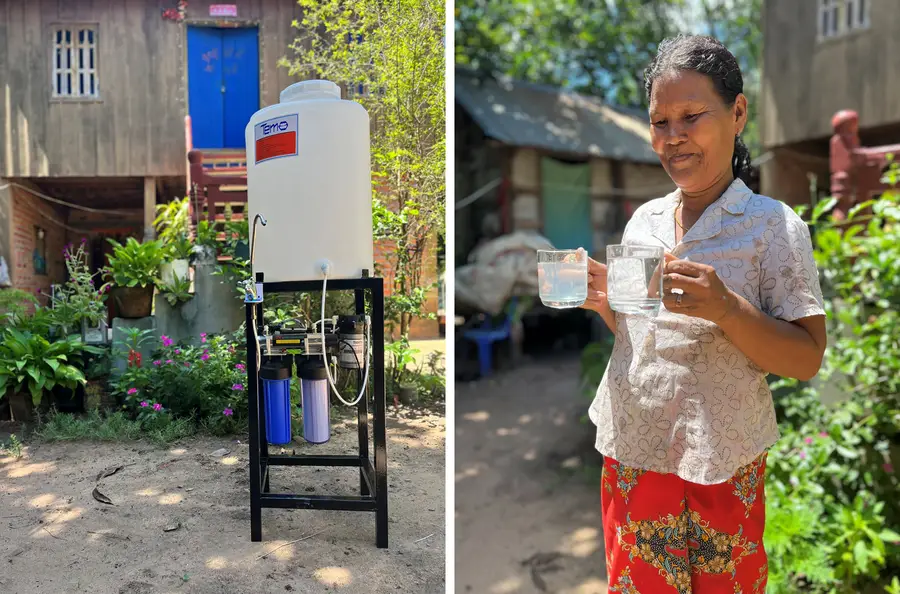Developing and piloting an innovative solution for Cambodian households to access clean water safely and conveniently
Objective
Study the feasibility and market potential for a household-level ultra-violet (UV) light water filtration system in Cambodia.
Approach
After assessing the situation, RTI collaboratively developed and piloted a new safe drinking water system, the UVPhlo™ surveyed households to understand market demand; and iteratively improved the technology to meet rural households’ needs.
Impact
Development of a new safe drinking water system liked by Cambodian households that conveniently purifies water, uses locally available materials, and is ready to scale to more homes and communities.
RTI leads implementation of the USAID Cambodia Integrated Early Childhood Development (IECD) Activity, which includes improving water, sanitation, and hygiene (WASH) services and access in rural Cambodia.
An IECD survey found that 20% of the population in the Activity’s target areas used unimproved shallow wells as a primary water source, which put people at risk of consuming and using contaminated water. While many households used water filters, drinking water was often stored in unclean containers as filters released water too slowly to meet demand. By storing water in unclean containers, these households re-contaminated the purified water. Additionally, to keep producing clean water, these filters required regular cleaning and replacement, which many households failed to do.
A comprehensive and convenient safe drinking water system that rapidly dispensed clean water when needed and required less cleaning and maintenance could address these issues.

UVPhlo™ water filtration system (photo on left) and water quality before and after purification with UVPhlo™ (photo on the right), a novel household water treatment system developed by RTI. Photo by Tate Rogers for Triangle Environmental Health Initiative.
Revolutionizing Water Access through Innovative Filtration Solutions
After learning about a drinking water system that used membrane filters and UV light to clean water at the annual University of North Carolina Water and Health Conference, RTI embarked on an internally funded study (March to August 2023) to rapidly test this technology’s potential in Cambodia.
The study consisted of:
- Assessment of the appropriate technology options for creating a filtration system.
- Evaluation of system design options with the community and prototype iteration.
- Pilot of the prototype with two households and one government office in rural Cambodia.
- Market survey of households in participating and non-participating villages.
The study found that:
- Materials were locally available for manufacturing these new filters, meaning they could be affordably produced.
- Water from the UV filtration system was initially overly acidic. The addition of an alkaline filter helped remedy the issue.
- Pilot participants experienced no issues using the filtration system and gained convenient access to clean water by using it. Surveyed households were interested in the technology and willing to purchase it for around $100.
RTI plans to use these findings to inform scaling of this technology, including the potential for local development projects to promote it and for local businesses to manufacture and sell the filtration system.
Learn more about RTI’s work in innovation for emerging and developing economies and in Cambodia.
- RTI-funded
- Triangle Environmental Health Initiative

